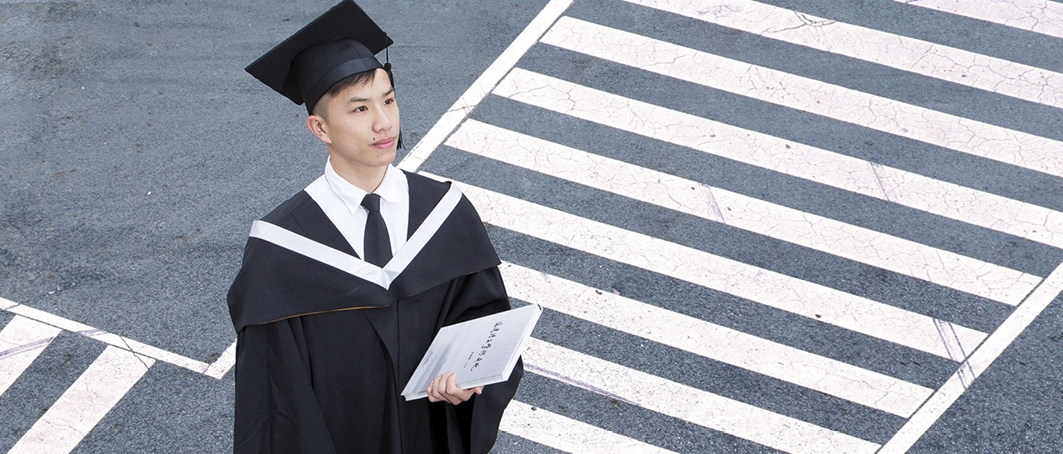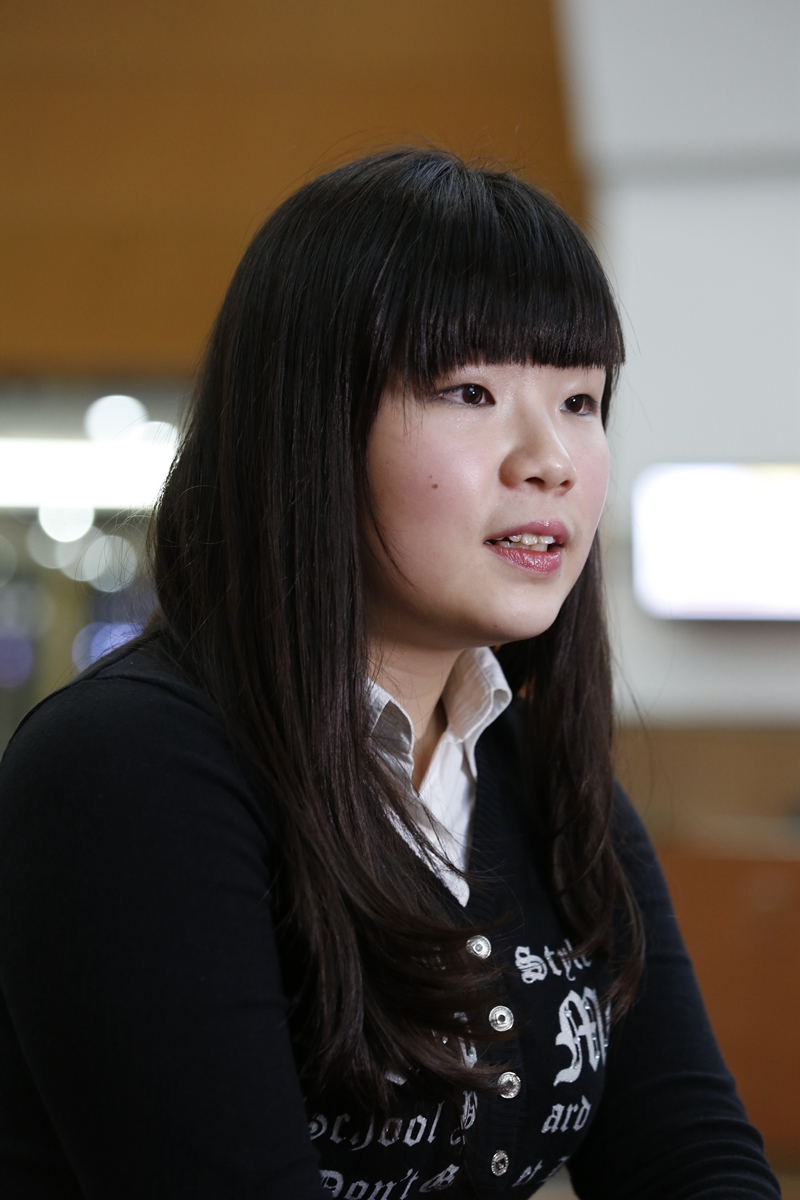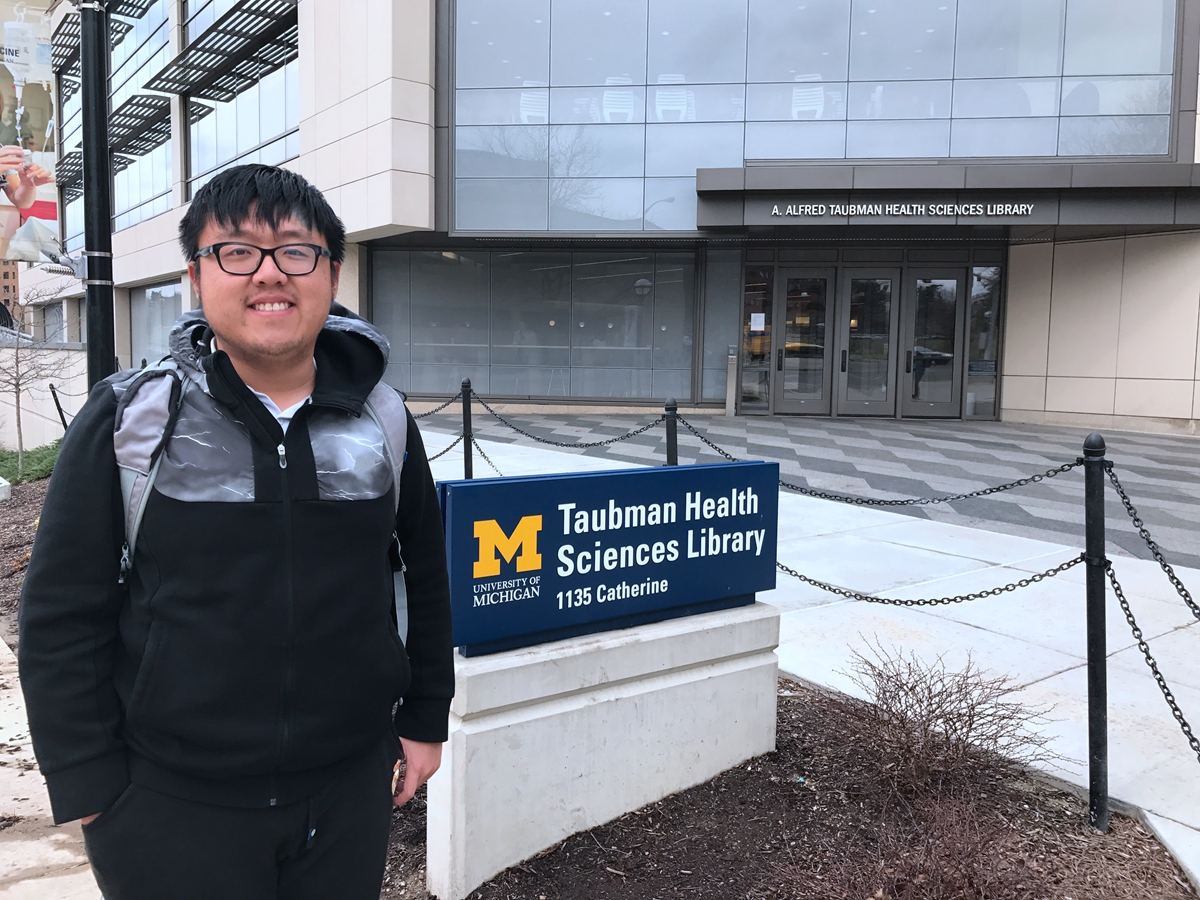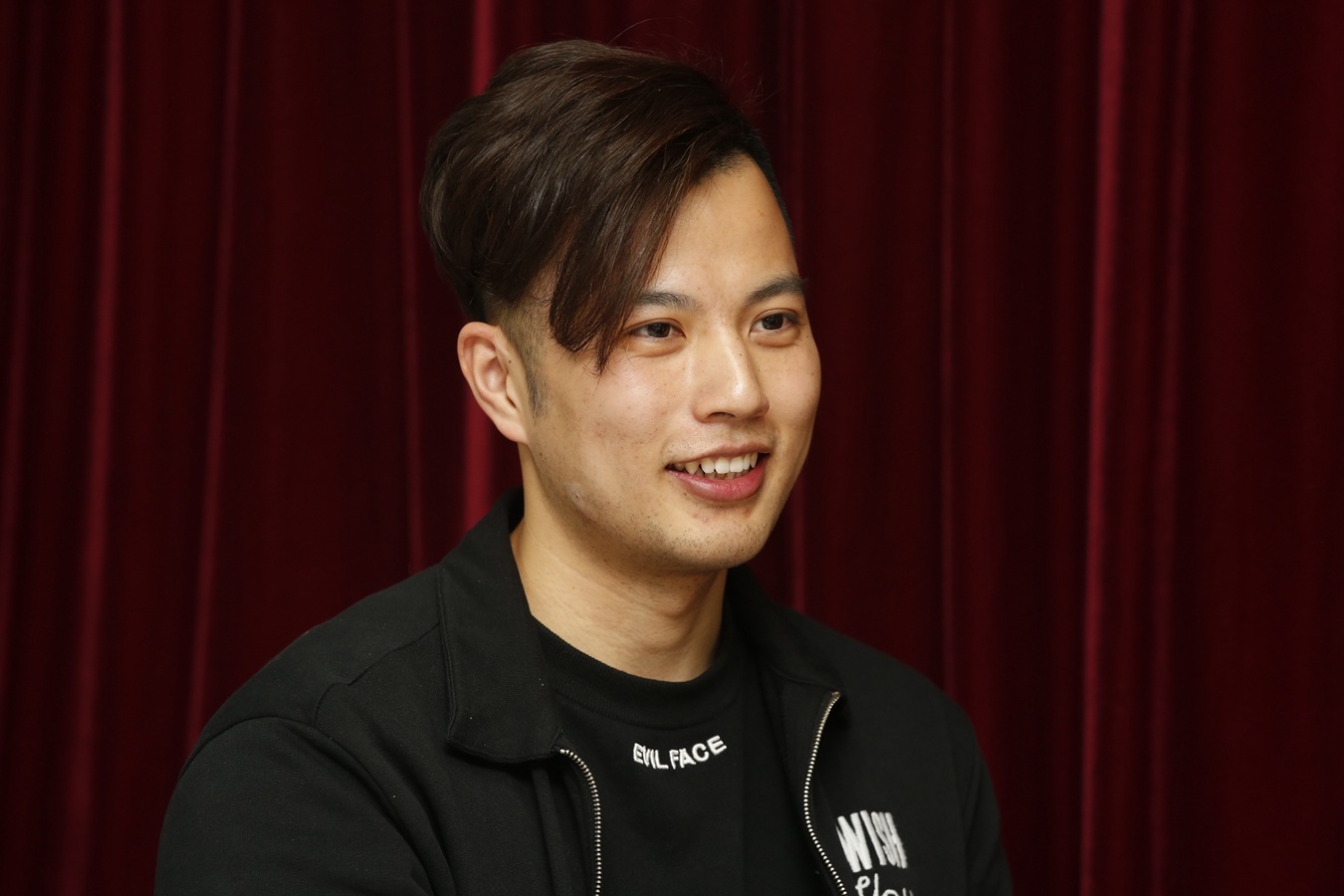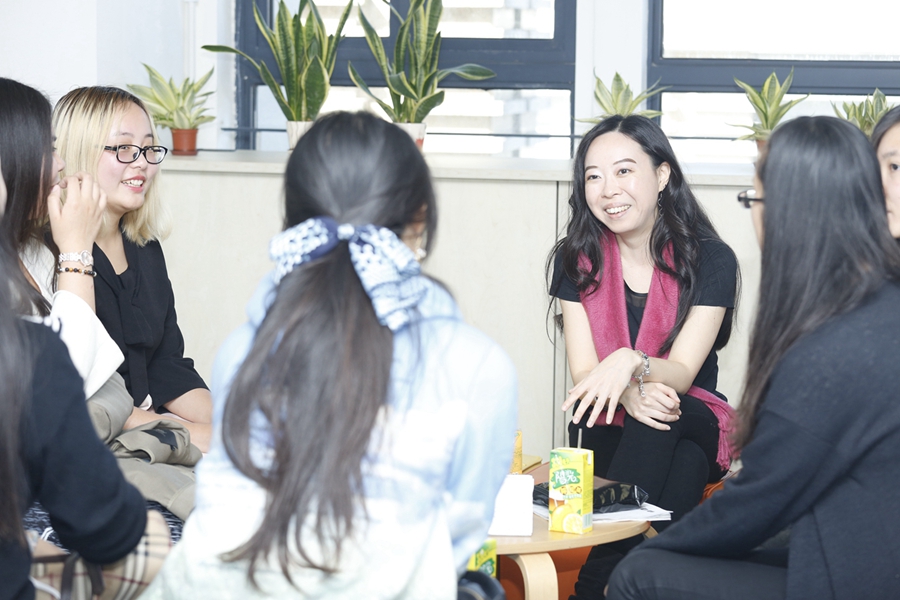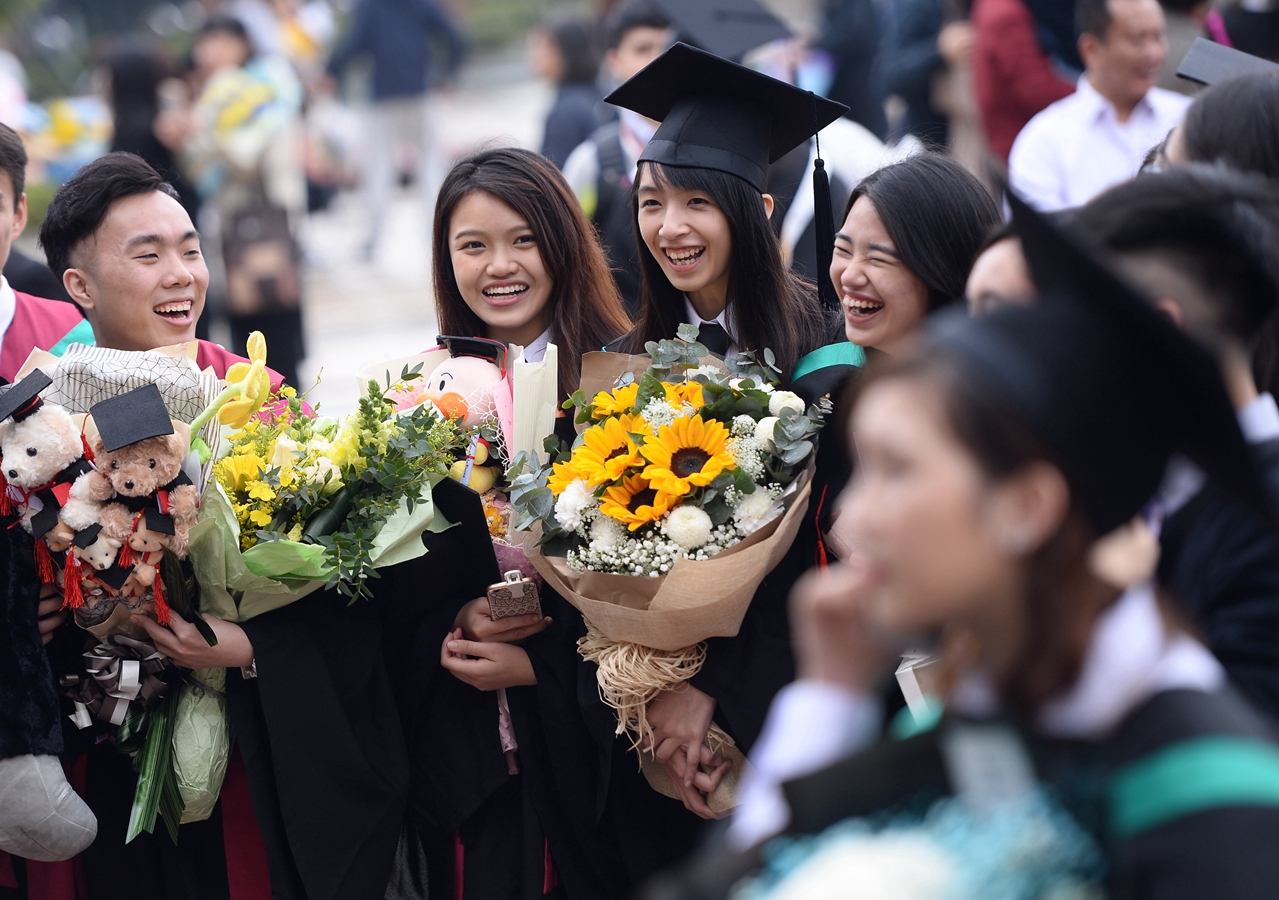In the meantime, he has received an offer from Alibaba to work as an intern for five months after graduation. So how would Sio choose? ‘The intern position at Alibaba is closely related to finance, which is something I would love to do in the future. Besides, Alibaba is very famous. So I plan to work there for a year to improve my expertise and expand my network,’ he says. ‘If I am accepted by the universities I’ve applied for, I will ask if I can defer my admission for a year. If they say no, then I will just wait for the next year, because the internship at Alibaba is a once-in-a-lifetime opportunity.’
Cristina Lopes Monteiro, a fourth-year student from the Department of English, majors in English, but she also studies Portuguese and Chinese-English translation courses on the side in order to improve her competitiveness. ‘My college experiences have taught me to be an independent self-learner. Whether I choose to find a job or pursue further studies after graduation, I believe I will do well,’ she says. Monteiro wants to become a language teacher. So she plans to find a teaching job after graduation so she can work and pursue a master’s degree at UM at the same time. ‘Pursuing further studies involves financial considerations, and I don’t want to be a burden to my family, so I decided to complete my master’s studies, save some money, and then apply for a PhD programme at the University of Dublin. This university is very famous in the field of linguistics. I hope to study at this university and realise my dream to become a university professor.’
Max Yue graduated from the Faculty of Health Sciences last year. After graduation, he went on to pursue a joint master and doctoral degree at the University of Michigan, and obtained a GPA of 4.0 at the end of the first semester. During our interview, he excitedly shared with us his experiences in the US. ‘Over the past six months, I have been exposed to cutting-edge knowledge in the fields of maths, statistics, and programming. I now see more choices for my career development,’ he says. Many of Yue’s classmates are from renowned universities such as Peking University, Tsinghua University, the Massachusetts Institute of Technology, and the University of California, Berkeley.
The C++ algorithm he and two other students from Tsinghua University developed in the last semester received the highest marks in class. This semester, their teacher decided to help them improve the work and produce a paper based on it.
Before graduating from UM, Yue once studied at the University of California, Berkeley, as an exchange student. That experience helped him quickly adapt to the life at the University of Michigan. ‘The courses at American universities are much harder and time-consuming than those at universities in Macao. But after one month of being here, I was able to adapt. The professors always encourage us to consider mathematical and statistical knowledge from multiple angles in order to avoid rote learning without true understanding,’ he says. For students who are undecided about whether to pursue further studies or find a job after graduation, Yue suggests that they should establish a goal and start planning as early as possible. ‘The four years in college are very short, so it’s important to make the most of the time,’ he says.
Every year, the Alumni and Development Office conducts a survey among UM graduates of bachelor’s, master’s, and doctoral programmes to find out the state of their employment and further studies one year after graduation. According to the survey conducted in 2015, more than 20 per cent of the Class of 2014 graduates chose to pursue master’s, doctoral or certificate programmes one year after starting work.
Approximately 50 per cent of UM graduates with a bachelor’s degree and 60 per cent with a master’s or PhD degree said that their studies at UM were beneficial to their career development. Hasen Cai is an alumnus of the Department of Sociology. After graduating from UM in 2015, he followed his passion and found a job in multimedia. ‘Sociology taught me to observe and investigate societal issues from different angles and perspectives, and what I have learned from sociology classes are very helpful to my career development,’ he says. Cai’s fondest memories about his college life were those of him working under the UM Reporter Programme and PR Student Ambassador Programme. The two programmes helped him develop extracurricular interests and acquire skills in photography, video editing, writing, and public relations. ‘Because of the practical experience in multimedia I gained from college and the guidance from the teachers of the elective courses from the Department of Communication, I was able to pursue a career in multimedia right after graduation.’
After working for a year after graduation, Cai decided to pursue further studies in photography and post-production. ‘My college major wasn’t communication, so I feel if I want to do well in this field, I must pursue further studies. I want to produce good-quality works to prove that I can do it,’ he says.
Prof Katrine Wong from the Department of English has many years of experience in further studies counselling. She suggests that in deciding which career path to follow, students should first consider their interests. ‘I always tell my students to ask themselves this question: What am I interested in doing? Trends keep changing. A subject that is popular today may become obsolete in five years. So whether they choose to find a job or pursue further studies after graduation, the important thing is to do what they are passionate about. That way, they will succeed at whatever they do,’ she says. ‘When faced with difficult choices, it’s natural to feel at a loss. Sometimes it’ s wise to work for a few years before pursuing further education; other times it makes sense to continue with their studies. I think the students need to decide according to their specific circumstances. When they don’t know how to choose, they can talk to their teachers and ask for their advice.’

